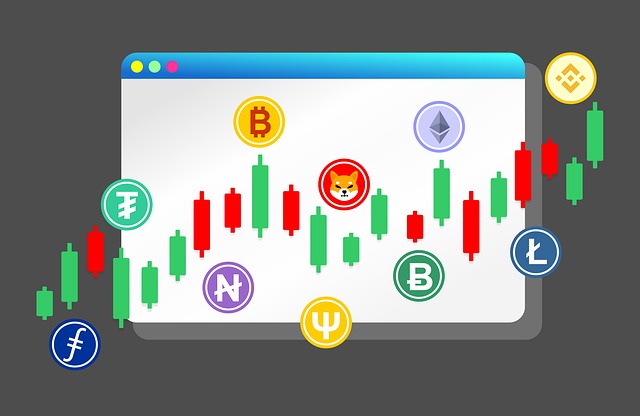Is eToro Good for Buying Crypto? A Practical Review
Author: Jameson Richman Expert
Published On: 2025-10-29
Prepared by Jameson Richman and our team of experts with over a decade of experience in cryptocurrency and digital asset analysis. Learn more about us.
Is eToro good for buying crypto? This comprehensive review answers that question by examining eToro’s features, fees, security, and user experience for crypto buyers. You’ll get a clear verdict, practical steps to buy on eToro, comparisons with major alternatives, and actionable tips to decide whether eToro fits your crypto goals.

Quick summary: who should consider eToro for crypto?
eToro is a strong option for beginners, casual investors, and social traders who prioritize a clean user interface, regulated custody, and copy-trading features. It’s less attractive for low-fee active traders, margin/derivatives specialists, or investors who want full self-custody and advanced order types. Read on for a detailed breakdown to help you decide.
What is eToro and how does it handle crypto?
eToro is a multi-asset brokerage and social trading platform founded in 2007. It provides stock, ETF, CFD, and cryptocurrency trading depending on your jurisdiction. For cryptocurrencies, eToro typically offers:
- Direct crypto trading (in many regions) — the ability to buy and hold supported coins.
- Crypto CFDs in regions where regulations permit derivatives trading (availability varies by country).
- An eToro Wallet app (separate) that allows users to hold, receive and send supported crypto assets.
- Social and copy-trading features that let users view and replicate other traders’ portfolios.
For background and context on cryptocurrency fundamentals, Wikipedia’s Cryptocurrency page is a useful starting point: Cryptocurrency — Wikipedia.
Key features that matter when buying crypto
When deciding “is eToro good for buying crypto”, consider these platform attributes:
- User Experience: Intuitive web and mobile apps designed for beginners.
- Asset Selection: A curated list of popular coins (BTC, ETH, LTC, ADA, XRP, etc.), but fewer tokens than many centralized exchanges.
- Regulation & Custody: Regulated entities in Europe, the UK, and Australia provide a level of oversight and custody structure.
- Fees & Spreads: eToro charges spreads and may have conversion/withdrawal fees — check live fee pages for exact rates.
- Social Trading & CopyPortfolios: Useful for beginners who want to mirror experienced traders.
- Withdrawals & Wallet: Ability to withdraw supported crypto to external wallets (subject to fees and limits).
- Order Types & Tools: Basic market and limit orders plus stop-loss/take-profit capabilities on many assets; not as feature-rich as pro exchanges.

eToro fees: what you need to know
Fees are crucial when buying crypto. eToro does not charge per-trade commissions in the traditional sense but uses spreads (the difference between buy and sell prices) and several incidental fees. Typical cost elements include:
- Crypto spread: A markup built into the price when buying or selling crypto. This varies by coin and market volatility.
- Currency conversion fee: If your deposit currency isn’t USD, eToro typically applies a conversion fee (check the current percentage on eToro’s site).
- Withdrawal fee: Fixed fee for fiat withdrawals (commonly a small flat fee; confirm current amount).
- Inactivity fee: Some accounts may be charged an inactivity fee after a period with no logins.
- Wallet transfer fees: If you withdraw crypto to an external wallet, network fees (paid to blockchain miners/validators) apply plus any eToro processing fee.
Because spreads change by asset and market conditions, always check live fees before executing trades. For a more advanced charting or fee comparison, you might find the crypto price index chart overview helpful for understanding price spreads and indexes.
Security & regulation: is your crypto safe on eToro?
Security and regulatory oversight are often decisive factors. Consider the following:
- Regulated entities: eToro operates entities regulated by reputable authorities (e.g., the UK’s Financial Conduct Authority, Cyprus Securities and Exchange Commission, and ASIC in Australia) — check the exact entity providing service in your jurisdiction.
- Custodial model: For direct crypto purchases on the eToro platform, eToro typically holds custody of the crypto on behalf of users (unless you transfer to your personal eToro Wallet).
- Wallet security: The eToro Wallet uses standard security practices (private key management, secure storage). Users can transfer supported coins to the wallet app and then to external addresses.
- Regulatory limits: Regulation limits some features (e.g., CFDs vs spot ownership vary by country), so check local availability.
For official regulatory details, see the FCA site: Financial Conduct Authority. Also review eToro’s security and regulatory pages on their site for the most current information.
Pros and cons: objective view
Here’s a balanced view to answer whether eToro is good for buying crypto:
Pros
- Beginner-friendly interface: Clean UX and accessible mobile app.
- Regulation and trust: Operates under multiple regulators, adding oversight and consumer protections.
- Social features: Copy trading and transparent trader profiles can accelerate learning.
- Direct ownership (in many regions): Buy and hold crypto, then transfer to a wallet if desired.
- Integrated fiat onramps: Easy deposits via card, bank transfer, and other options (availability depends on region).
Cons
- Fees and spreads: Typically higher effective costs than leading centralized exchanges.
- Limited altcoin selection: Fewer niche tokens compared to Binance or decentralized exchanges.
- Advanced traders may prefer other platforms: Less advanced charting, fewer order types, and limited derivatives for many users.
- Custodial constraints: Until coins are withdrawn to your own wallet, you don’t control private keys.

Step-by-step: how to buy crypto on eToro
Practical steps to buy crypto on eToro. Note that exact options depend on your country and whether you’re using the eToro platform or the eToro Wallet app.
- Create and verify your account: Sign up, complete KYC (ID and proof of address), and enable two-factor authentication (2FA).
- Deposit funds: Add fiat via bank transfer, debit/credit card, or supported payment methods. Confirm whether your deposit currency will be converted to USD and what conversion fee applies.
- Search for the crypto: Use the platform search to find BTC, ETH, ADA, XRP, etc. If you’re interested in XRP trading hours or specifics, this guide on what time XRP market opens can be useful.
- Choose buy amount and order type: Select market or limit orders (where available), set stop-loss/take-profit if desired, and review the estimated spread.
- Execute and monitor: Confirm the trade and monitor the position. Use copy-trading or follow price charts to inform future decisions.
- Withdraw to external wallet (optional): If you want full self-custody, transfer supported coins to the eToro Wallet app and then to your external address. Be aware of network fees and eToro’s minimum withdrawal limits.
Practical example: buying $500 of Bitcoin on eToro
Example steps and considerations:
- Deposit $500 via your preferred payment method (be aware if your currency converts to USD and attracts a fee).
- Search for Bitcoin (BTC) and select “Buy.”
- Choose the order type (market vs limit). If you select market, your order fills immediately at the quoted spread.
- Review fees: you’ll pay the spread at execution and possibly conversion/withdrawal fees later if you move funds externally.
- Decide whether to hold on-platform or transfer to the eToro Wallet for external custody.
Remember: spreads and network fees vary with market conditions. For a deep dive into how spot trading works on mobile apps like Binance (useful if you later want more advanced trading tools), see this detailed guide on spot trading on Binance app.
eToro vs major alternatives — quick comparison
If you’re asking whether eToro is the best place to buy crypto, context from other platforms helps.
eToro vs Binance
- Fees: Binance generally offers lower trading fees and tighter spreads for active traders.
- Asset range: Binance supports thousands of tokens and advanced derivatives, whereas eToro lists a smaller curated set.
- Complexity: Binance can be overwhelming for beginners; eToro is simpler and socially oriented.
If you want to open an account on Binance to compare fees or trade a larger variety of assets, you can register here: Create a Binance account.
eToro vs Coinbase
- Beginner experience: Both aim at retail users; Coinbase is also beginner-friendly but with a different fee profile.
- Custody & wallet: Coinbase offers native wallet and staking features; eToro offers its own wallet and selective staking in some jurisdictions.
eToro vs Kraken
- Security and compliance: Kraken is well-regarded for security and tends to attract more experienced traders.
- Fees & features: Kraken provides advanced order types and typically lower fees for high-volume traders.
eToro vs Derivatives-Focused Exchanges (Bybit, Bitget, MEXC)
- Bybit and Bitget are known for derivatives and margin products; they often offer competitive fees, advanced tools, and promotional deals. If you plan to trade derivatives or want deeper liquidity, these platforms are alternatives. Sign up links: Join Bybit, Register on Bitget.
- MEXC is another exchange with many tokens and often promotional listings: Register on MEXC.

When eToro makes the most sense
Choose eToro if one or more of the following apply to you:
- You’re a beginner who values a simple interface and guided experience.
- You want to try copy-trading or social trading features to mirror experienced investors.
- You want a regulated platform with straightforward fiat onramps and an integrated wallet option.
- You prefer fewer decisions and a curated list of mainstream cryptocurrencies.
When to choose other platforms
Look elsewhere if:
- You prioritize the lowest possible trading fees and the tightest spreads.
- You need advanced order types, futures, or margin trading at competitive costs.
- You want to access a large number of altcoins or decentralized finance (DeFi) tokens.
- You prefer to always self-custody your private keys (not leave custodial holdings on an exchange).
Advanced tips and best practices when buying crypto on eToro
- Understand spreads: Compare the buy and sell price before executing, especially for less liquid tokens.
- Use limit orders for bigger trades: Where available, limit orders help avoid slippage on volatile assets.
- Withdraw what you need: If you want full private-key control, transfer crypto to the eToro Wallet and then to a hardware wallet for long-term holdings.
- Check regional differences: Platform features vary by country — confirm what’s available in your jurisdiction.
- Security hygiene: Enable 2FA, use strong unique passwords, and be cautious with social engineering attempts.

Tools and resources to improve trading decisions
To analyze market activity and time your trades better, use reliable charting and market-overview tools. For example, an in-depth crypto price index and chart overview provides strategic insights into price indices and trends. If you later want to use bots or explore automated trading, review options and alternatives such as those discussed in the NURP trading bot price and alternatives article.
Special note on XRP and market hours
If XRP is a coin you trade, be aware of liquidity windows and how global trading hours affect spreads. For specifics on XRP market times and practical trading considerations, read this dedicated guide: What time does XRP market open — trading guide.
Taxes and reporting
Buying crypto on eToro does not exempt you from tax obligations. Capital gains, income from staking (where available), and other taxable events depend on your country. Keep accurate records of trade dates, amounts, and prices. Consult local tax authority guidance or a tax professional for specifics. For general tax guidance, your country’s revenue authority or educational tax resources are authoritative starting points (e.g., the US IRS or HMRC pages).

Final verdict: is eToro good for buying crypto?
Short answer: Yes — but it depends on your needs.
If you are a beginner, a casual investor, or someone who values regulated custody, social/copy trading, and a streamlined buying experience, eToro is a good choice for buying crypto. It simplifies fiat onramps, offers a curated asset list, and is backed by regulated entities which can provide peace of mind.
However, if your priorities are the lowest possible fees, a huge token selection, advanced trading tools, or strict self-custody via private keys, other exchanges like Binance, Kraken, or derivatives platforms (Bybit, Bitget, MEXC) may be better suited.
Next steps — if you want to test or switch platforms
- Open an eToro account and make a small initial purchase to learn the flow.
- If you want to test lower-fee exchanges, consider creating accounts on major platforms for comparison: Binance, MEXC, Bitget, Bybit.
- Use charting and indexing resources (for example, the crypto price index overview) to sharpen entry/exit decisions.
Disclaimers & final advice
This article is educational and should not be taken as financial advice. Cryptocurrency investing carries risk, including loss of principal. Fees, features, and regulatory status vary by country and change over time — always verify the latest details on official platforms and consult a financial professional for personalized advice.
If you’re new to spot trading mechanics or want a step-by-step mobile trading guide, check this beginner-friendly resource on spot trading on Binance app.
Bottom line: eToro is good for buying crypto for many users — especially beginners and social traders — but compare fees, custody preferences, and available coins to decide whether it’s the optimal choice for your objectives.